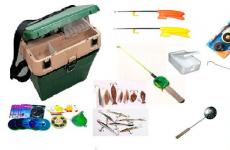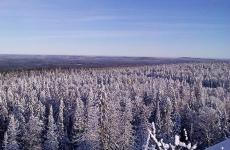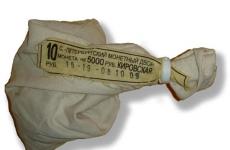Population of Yiwu. Wholesale markets in Yiwu city, China
Yiwu city on the map of China.
Who would have thought that 20 years ago it would begin its rapid ascent and become the world's largest center for international wholesale trade. Today the city of Yiwu (义乌 ) (Yiwu) is a colossal trade anthill, in which out of 2 million inhabitants, 1 million 300 thousand are foreign businessmen, traders, logisticians, translators and representatives of all professions of the trade infrastructure.
 Yiwu Wholesale Markets.
Yiwu Wholesale Markets. The lack of sea transport links is fully compensated by the proximity of Shanghai and Hangzhou with their developed transport network and international air travel. Yiwu is the epicenterwholesale purchases of goodspublic consumption. His religion is trade. Local merchants adore their customers and skillfully cater to them. They say that without buyers they will quickly go bankrupt. So shopping here is not only profitable, but also pleasant.




In particular, more than 200,000 retail outlets are active every day. From here, goods go to 200 regions of the country every day. Bidding on half a million products from almost 2,000 industry areas takes place at the same frequency. According to the UN, this is the largest specialized market. Read also,what can you buy in the city of “wholesale markets” .
City Yiwu is famous not only for its shopping arcades. The largest aquarium in the region is also located here. It can be found in the picturesque Paradise Park. The city has well-preserved architectural structures with ancient paintings and ceramics from the Ming and Qing eras. A well-kept modern park frames the ancient and carefully protected Lake Xiuhu, which dates back to the Song Dynasty. Park in Yiwu city.
Park in Yiwu city. But lyrical digressions can be afforded only for a short time. After all, the main purpose of a visit to the city of Yiwu in China isbest shopping in the world! All conditions have been created for this. In addition to colossal shopping areas with a dynamic infrastructure, there are almost 700 hotels in the city. They can simultaneously accommodate 40,000 tourists. A separate topic is the restaurant business. Its high quality and variety of dishes can be appreciated by representatives of various religions and preferences. All life in the city of Yiwu revolves around trading platforms, the largest of which Futian market . It is formed by 5 huge buildings, 8 km long. Every day, representatives of 70,000 industries from all over the Middle Kingdom conduct brisk trade here. This market is the leader in offering a range of household goods in the world. In addition, the range of products presented includes interior items, children's toys, light industry products, stationery and much more.

The markets of Yiwu (China) demonstrate a huge assortment of costume jewelry, sewing accessories, decorative items and artificial flowers. All this is delivered here from the suburbs. Numerous production facilities producing these products are located there. In particular, the largest factory TM Mengna operates there, which produces a huge range of socks, tights and stockings. These facilities became the basis for the production of hosiery products of Italian and Russian brands. And yet, this is not the only thing that the kilometer-long shopping arcades are famous for. Yiwu wholesale markets have such a trump card asconstruction direction. Contrary to many years of misconceptions, Chinese tools and components are distinguished by high quality and long service life.
Yiwu (in English "Yiwu", in Chinese义乌) is a city with a population of about 2 million people, located in the east of Zhejiang Province. The city is famous primarily for its developed international trade in light industrial goods.
Formally, Yiwu is just a city of “district significance”, under the control of the “district center” - Jinhua. But Yiwu is better known than Jinhua, both within China and in other countries.
Exit from Futien Market and view of the business district in Yiwu
Modern Yiwu
Yiwu has been developing so rapidly in recent decades only thanks to the Futien International Wholesale Market. This is a kind of “city-forming enterprise”. Today it is a huge complex of buildings, more than 150,000 showrooms of manufacturers and trading companies from all over China.
Futien is the most successful wholesale market in China. The project aims to provide an opportunity for many manufacturers from all over China to show their products directly and “live” to customers from different countries. In fact, this is the largest exhibition that never closes.
Many cities and regions wanted to attract buyers from all over the world and had similar projects, but only in Yiwu did everything work out so well. Now Futien and Yiwu are one of the most attractive places in China for those who want to find suppliers and do business related to the export of goods from China. Yiwu only competes with Guangzhou and Shenzhen, and Yiwu always has more attractive prices and it is not necessary to buy goods in whole containers.
One of the reasons is the competent economic and administrative policy of the region. Yiwu has special conditions for local and, most importantly, foreign companies.
 Main entrance to Futien Wholesale Market District No. 1
Main entrance to Futien Wholesale Market District No. 1
The second reason is the Futien complex itself. Perfectly organized space, convenient location, huge size - more than 150,000 showrooms of manufacturers from all over China.
Developed infrastructure - more than a hundred hotels, many office buildings, warehouses, developed transport network - getting to Yiwu is not difficult.
Foreigners can easily reside in Yiwu without strict supervision from the authorities. They can open their offices and representative offices of companies - also according to a simplified procedure. Such economic freedom ultimately bore fruit - there are many purchasing offices and purchasing agents from all over the world in Yiwu, which only increases trade turnover.
The city continues to grow, new districts of the Futien market, a business and financial center, warehouse areas, factories, representative offices of suppliers and manufacturers are being built.
 Business and financial district under construction in Yiwu
Business and financial district under construction in Yiwu
Nowadays, delegations of government officials from other cities and regions of China are not uncommon in Yiwu. They are trying to learn from the experience of the city’s economic development. Many conferences and events are held at the regional and government level.
The city is home to a large number of foreigners, most from India and the Middle East - the largest buyers in Yiwu, purchasing the largest volumes of products in quantitative terms. These are mainly purchasing agents, trading companies, purchasing offices of foreign companies.
Currently, due to the fact that there are more and more foreigners in Yiwu, many of them are employed not only directly in the field of international supplies. Many are engaged in business in the service sector - many European, Muslim, Arab restaurants and cafes, hairdressers, hotels and so on are open. As well as Christian churches and mosques.
In the recent past, just a few years ago, a huge number of replicas of famous brand products were produced in Yiwu. Nowadays the rules have become stricter and copies are becoming harder and harder to find.
 Business district in Yiwu, China
Business district in Yiwu, China
The city continues to be actively developed - new roads, bridges, entire residential areas, shopping centers. However, population growth is currently in question.
Most of the residents are “migrant workers”; the main indigenous population in Yiwu is only about 600-700 thousand people. In 2015, there was a decline in trade both in China in general and in Yiwu in particular. Therefore, no one knows whether the city will continue at the same rapid pace. Everything depends on the economic situation in the world, on the demand for goods.
There are more than 100 hotels in Yiwu - from the most inexpensive to the Marriott Hotel. Most of them are also located near Futien Wholesale Market.
The airport in Yiwu accepts flights within China, it is not international. You can fly here from Beijing, Guangzhou, Hong Kong, Urumqi and other cities.
 Yiwu, near District No. 3 Wholesale Market
Yiwu, near District No. 3 Wholesale Market
There is also a bullet train station, part of China's high-speed train network. High-speed trains can be used from Shanghai, Beijing, Hangzhou and other cities. The station is currently being expanded to accommodate more and more passengers.
The Yiwu Port logistics center is located in Yiwu. This is a colossal building that includes warehouse space, offices for commercial and government organizations, and, most importantly, a customs office.
You can load a container into Yiwu Port and immediately, without leaving the complex, carry out all the customs clearance procedures required in China. This is very convenient; in the future, the container is sent to seaports already “cleaned” - saving time.
 Office buildings near Futien Wholesale Market in Yiwu, China
Office buildings near Futien Wholesale Market in Yiwu, China
Yiwu is also the beginning of the “new silk road” - containers leave from here to Europe and Russia via the new high-speed railway. For example, goods travel to Moscow by rail in only about 14 days. True, prices are still high, but in the future everyone expects further development of this path and lower prices.
In the future, this is a real alternative to sea transport. First of all, this route is interesting because of the speed of delivery of goods.
Yiwu (or - yiwu) is located in the southeast of Zhejiang province, in China. This is a commercial city developing at an incredible pace. In the past twenty years, tremendous changes have occurred in its development, the city has become China's largest base for the export of consumer goods, and one of the largest wholesale markets for household goods in the world. In fact, it has been China's number one market for industrial products for the past 17 years.
The city of Yiwu (China) has an ancient history, but the most important pages in it have been written in the last twenty years. Its population is more than one and a half million people, among whom almost seven hundred thousand are local residents. These places are the birthplace of famous people of China: Luo Bingwan - one of the outstanding people in the early Tang Dynasty, Dzun Jie - a general of the Song Dynasty, and many others. But first of all, Yiwu is known as a trading center, i.e. This is the city that occupies a leading place in the world in the number of fairs and the range of goods.
Less than twenty years ago, in these places there was a county center, unknown to anyone, now it is a city on the map, in which people from opposite ends of the earth work and live. Once the main occupation was agriculture, now it is the capital of public goods. Despite the fact that Yiwu is geographically unattractively located and is not a leader in terms of resources, it has been rapidly growing economically in recent years.
This city achieved prosperity thanks to trade. Statistics say that every day the number of retail outlets reaches over two hundred thousand people, and goods from the city are exported to two hundred districts. In these places, 400 thousand types of goods from 1,900 industries are traded every day, so you can safely call the city a paradise for buyers. By 2005, Yiwu's product turnover was about 40 million yuan and the place was named the world's greatest specialized market by the UN.
Interesting information about Yiwu attractions
The main attractions in the city are not only shopping centers and fairs. Here is the largest aquarium in the entire province. It is located on the territory of Paradise Park. At the same time, the old city boasts buildings from the Ming and Qing eras, as well as ancient paintings and ancient ceramics. In the old part there are streets where tourists can see bridges, temples and gazebos.
Yiwu has a park that opened in 2003 and is located on the waterfront of Xiuhu Lake. This park is located in the central part, and the lake itself was here during the Song Dynasty. The very center of the water surface is decorated with a pagoda, an island that can be easily reached by boat that runs between the park and the square.
Amazing news for real shoppers

The city is constantly building new markets, you can easily discover an unknown shopping center, because in Yiwu (China) there is an active policy of incentives so that even more capital is brought into the manufacturing and service industries. Today, the city accommodates 10 thousand industrial enterprises, and over 59 billion yuan per year is spent on industrial production.
Residents in these places say that for them the client is the main person, without him they will remain poor. That is why shopping in Yiwu is a pleasant experience, and any buyer will be satisfied with the assortment. The city of Yiwu is a place that China can be proud of, because it has become a real paradise for tourists, where it is possible to find virtually any product. But the main attractions in these places are the long shopping streets and colorful fairs.
Location of Yiwu in China
You won’t immediately find the city of Yiwu on a map of China, because by the standards of the country it is quite small. Its exact landmarks are 300 km south of Shanghai, 150 km west of Ningbo, or 150 km north of Wenzhou, and another 100 km south of Hangzhou, the capital of Zhejiang province. For your first acquaintance with Yiwu on the Internet, it is better to find an interactive map, which is an object based on the latest topographic measurements with satellite imagery. To view the details, you can familiarize yourself with the schematic image, which is always online. This way you can look at neighborhood plans based on your priorities. As a traveler, such a city map gives you the opportunity to plan your future route.
Yiwu is the largest shopping center in China

Let us return to the fact that, despite the parks and recreation areas, ancient buildings and attractions, the city of Yiwu is the main market of a country like China. Its service sectors are colossal, and not only in trade. There are about 650 hotels in the city, which means that 40 thousand clients can be accommodated overnight. There are also numerous restaurants with Chinese cuisine and another thirty South Korean and even Muslim ones.
Basic information:
- Chinese name:义乌 / Yìwū
- Location: Yiwu city is located in the center of Zhejiang province and is 100 kilometers from Hangzhou, the provincial capital.
- PS population: 1,280,000 people (According to the city's municipal statistics bureau as of 2016).
- Attractions and main events: International Wholesale Market, Huangyuan Trade Center (mainly selling clothing), Bingwan Market (clothing and bedding), Yiwu International Expo Center, Yiwu Annual Trade Fair (held in October).
- Time required: If you come to Yiwu for wholesale goods, three to five days will be enough for you to go around all the markets and purchase everything you need.
- Popular activities: Shopping, gastronomic tourism, sightseeing.
Prices and selection for certain types of goods in Yiwu are significantly better than in Guangzhou– this is due to the fact that there are several tens of thousands of factories and production workshops located in the city. International trade organizations note the uniqueness of this shopping area.
The city of Yiwu specializes mainly in wholesale sales of small goods, such as: souvenirs, costume jewelry and jewelry, accessories, fittings, toys and gifts, consumer goods, household goods, fabrics and materials. But every year, the range of products presented is growing.
Entrepreneurs from all over the world regularly come to Yiwu, purchasing various products in bulk and selling them in their markets. Currently High speed railway between Yiwu and Shanghai, which opened in 2014, adding to the existing railway of the same type connecting Guangzhou and Yiwu. Thus, the Chinese authorities are gradually turning Yiwu into a popular trading area.
Yiwu Attractions
 There are three largest markets in Yiwu city: Futien International Trade Centre, Binwang Market and Huangyuan Market. All of them are located within 5 kilometers of each other, which is extremely convenient for tourists who come for shopping. There are approximately 40 million different products to be found in these three markets, but it is recommended that you check the list below to see what products each market specializes in selling.
There are three largest markets in Yiwu city: Futien International Trade Centre, Binwang Market and Huangyuan Market. All of them are located within 5 kilometers of each other, which is extremely convenient for tourists who come for shopping. There are approximately 40 million different products to be found in these three markets, but it is recommended that you check the list below to see what products each market specializes in selling. Futien International Trade Center / China Commodity City
International Wholesale Market: There are six five-story buildings with a total area of 4 kilometers. Equipped with heating and air conditioning, you can find just about anything in this convenient shopping center. Many store owners sell goods exclusively wholesale, but you can always find a seller who agrees to sell goods at retail. This is the largest wholesale market in all of China.
It is also the most impressive market in Yiwu city. There are 70 thousand stores here, where you can find products from 100 thousand different Chinese factories and factories. The area of the entire complex is 4 square kilometers or 4.5 million square yards.
- Names: 义乌国际商贸城, China commodity city, International trade city, Futian, Yiwu Market
- Translator: It is recommended to use the services of a translator to communicate with sellers and navigate the complex. We can provide an interpreter in Yiwu.
- Address: 市城北路 / Chengbei Road
Huangyuan Shopping Center
This is the newest of all the markets in the city, and its area is 117 acres (almost 0.5 sq. km). It is located on Chaozhou Street. Here you can find budget clothing, which is produced mainly for the Chinese market. It is worth noting that its style and quality may not meet the standards of European countries.Address: Huangyuan road, 51
Binwang Market
This is a clothing and bedding market with more than 8 thousand stores.
Address: 宾王路129号/ Binwang road,129.
Yiwu International Expo Center:
Yiwu International Exhibition Center: It is located opposite the old Meihu Exhibition Center. On its territory there is a five-star hotel and an exhibition complex with an area of 300 thousand square meters.Various trade fairs and exhibitions are regularly held here. The largest of these is the Yiwu International Trade Fair, which is held at the end of October.
Address and name in Chinese:义乌国际博览中心宗泽东路59号/ Zongze road, 59
Yiwu International Commodities Fair
The International Trade Fair (中国义乌进口商品博览会) takes place annually from October 21 to 25 and attracts about 200 thousand buyers, 24 thousand of whom are foreigners. The exhibition complex has 2.5 thousand stands, and outside there is a trading area where exhibitors sell their goods.Venue: Yiwu International Exhibition Center.
Weather in Yiwu
Yiwu Climate: Subtropical monsoon. In general, the climate here is mild and humid. All seasons are clearly expressed.At the end of October, when the international trade fair is held, the weather in Yiwu is usually cool and sunny. It is best to visit the city in October-November, since during these months the weather remains pleasant with virtually no precipitation.
Cafes and restaurants in Yiwu
Local dishes: Futien cookies, Susi sesame cake, Jalin sweet bean paste cake and exotically named Huihui cakes are a must-try in Yiwu.Restaurants: Every year, about 300 thousand tourists come to Yiwu, where just over 9 thousand foreigners live, and therefore the city has many restaurants offering dishes of Korean, Japanese, American, Russian, Arabic and South Asian cuisine.
Yiwu Hotels
The average room rate in good hotels in Yiwu is 250 yuan per night. You can also find cheaper hotels popular among Chinese tourists, or stay in more expensive five-star hotels.Transport
High-speed trains with the letter G will take you to Yiwu at a speed of 300 km/h from any major city in China.Yiwu Main Railway Station Yiwu Station (义乌站), where regular and high-speed passenger trains depart from, is located 15 kilometers north of Futien Market. Approximate taxi cost: 35 yuan / 30 minutes.
How to get from Yiwu to Shanghai: At the end of 2014, a high-speed railway in China was built between Yiwu and Shanghai, using G-type trains. The trip takes no more than one and a half hours. Trains depart approximately every half hour during the day. Ticket price: from 120 yuan, travel time: 2 hours.
How to get from Yiwu to Guangzhou: There are also three high-speed trains running between Guangzhou and Yiwu every day.
High-speed train tickets start from 674 yuan for a second class ticket, travel time: 7 hours. However, tickets for a regular passenger train, type K, start from 120 yuan, and the journey takes 18 hours.
Yiwu Airport
Airport code: YIWAddress: 民航路201号义乌机场. The airport is located 6 kilometers from the city center.
Bus stations
Yiwu is one of the largest transportation hubs in the area. There are two intercity bus stations in the city. From Binwang Bus Station (义乌宾王客运中心) buses depart to cities located in Zhejiang Province and for short distances, and from Yiwu Bus Station (义乌长途汽车) buses depart to other provinces and for long distances.Just a few hours by train from Shanghai, the world's largest market city, Yiwu, is located in Zhejiang province. It is also called CCC (China Commodity City - the city of Chinese goods). Yiwu, like many other cities in China, has transformed over the past decades from a village into a huge center of trade, where small and medium-sized businesses are concentrated. In 2016, the city's GDP was 111 billion yuan ($16.8 billion).
Yiwu's success is certainly remarkable, but can the market withstand increasing competition from other low-cost overseas producers such as Vietnam or Bangladesh?
History of Yiwu
Yiwu is located too far from the sea to develop as a port, in addition, the city is located in an area almost unsuitable for agriculture, and there are no mineral resources here. Its development depended entirely on domestic and international trade. And the proximity to Shanghai and Hangzhou added advantages in the logistics sector.

The growth of Yiwu's trade began in the late 1970s, when the first local businessmen began to expand their trade links with more developed cities. The famous Chinese (connections) were especially strong in Yiwu, whereby business information and contacts were quickly exchanged. This was one of the main driving forces behind the development of the market city, given the relatively poor support of the industrial sector.
Yiwu is one of those Chinese cities that demonstrate the success of Deng Xiaoping's reforms launched in 1978. The new pricing system and permission for private enterprise allowed the local tertiary sector of the economy to rapidly develop.
The decentralization of government control over trade to specific areas led to Yiwu authorities launching China's first free market in 1982. Since then, its trade turnover has continued to grow relentlessly.

Today, Yiwu has grown from a simple wholesale market into a whole cluster, which is considered the national economy of the country, and its population is 1.2 million people. It has continuously won government awards for its rapid development and exemplary management. In 2005, Yiwu was named the world's largest light industrial goods market in a joint report by the World Bank, the United Nations and Morgan Stanley.
Products and customers
Heavy industry and high-tech manufacturing are located in the areas around Shanghai, Guangzhou and Beijing. Yiwu, in turn, specializes in the production and trade of light industrial goods. From key chains and toys to cosmetics and jewelry - in total there are more than 300 thousand different items of goods.

Yiwu is an international trade hub, with more than 200,000 shoppers arriving every day to buy goods spanning 40 industries and 2,000 industrial categories. In total there are more than 70 thousand points of sale: from small pavilions to the largest shopping centers. The third largest trade fair in China, the International Commodities Fair, is held here every year and is extremely popular, with exhibitors booking their spots a year in advance.
Although the majority of Yiwu's exports are to the United States, the city has extensive trade links with almost every country in the world. Now the emerging markets of Africa and the Middle East are taking the leading positions.
Closest competitors
Despite the amazing success of Yiwu's economy, there are now some doubts about its bright future. The conditions that led to its rapid growth are gradually weakening. Rising overhead costs are forcing buyers to consider alternative options for locating production in countries neighboring China.

Having many infrastructure problems, the so-called "Mighty Five" group of countries (MITI-V: Malaysia, India, Thailand, Indonesia and Vietnam) nevertheless offers a viable alternative to China's increasingly expensive labor force. But for many companies this option is still unacceptable.
The low price of labor and raw materials in China's neighboring countries does not always outweigh their other disadvantages. Developed production infrastructure, 30 years of international trade experience, technology and production efficiency, legal aspects, as well as cheap and convenient logistics - all this will keep China afloat for many years to come. However, this applies to heavy industry, mechanical engineering and high-tech industries.
Light industry will eventually partially move to other countries. For this reason, in order to survive, Yiwu needs to transform its economy over time, relying not on the sale of cheap small goods, but on quality, high-quality service and a developed logistics system. Yiwu will then be able to strengthen its status as an international exhibition and trade center.





